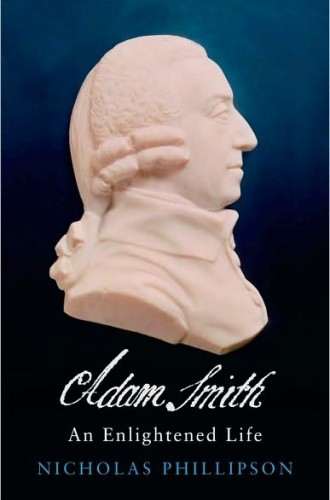A Review of Adam Smith: An Enlightened Life
The Scottish Enlightenment of the 18th century was fascinating because it pondered the deepest questions of how a social order can be structured to maximize human welfare. This movement explored human nature and the social institutions that would work best with the forces that really govern behavior. Philosophers like Thomas Hobbes, Bernard Mandeville, David Hume and Montesquieu contemplated these concerns extensively, but none of them put together a moral and social system as comprehensive as Adam Smith's.
This engaging and detailed biography by historian Nicholas Phillipson gives readers a clear sense of the intellectual dialogue going on among the thinkers of Smith's time while presenting insights into the cultural climate and social customs of 17th-century Scotland.
Though Smith was socially inept, he was a beloved teacher and scholar who challenged many of the social institutions of the medieval period that still held sway in his time. He managed to bridge the gap between an authoritarian Presbyterian church hierarchy and the open skepticism of his close friend David Hume, whose ideas he frequently shared. As a word crafter he labored hard to present a moral, economic, political and legal framework that could guide new thinking about how the world should work. Though he finished major books only in the moral and economic areas, his teaching and informal papers give insights into what he considered to be the complete picture.






